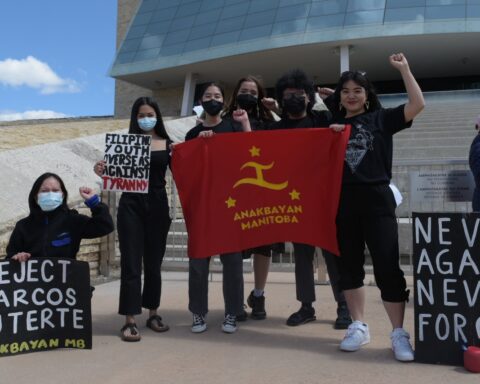Elections Canada would need a bare minimum of six months to carry out a referendum on electoral reform, owing in large part to a loss of corporate memory on how to manage the process, Chief Electoral Officer Marc Mayrand said Thursday.
Appearing before the standing committee on procedure and house affairs, Mayrand was asked by Conservative democratic reform critic Scott Reid to elaborate on a risk highlighted in the agency’s 2016-17 report on plan and priorities (RPP).
In the RPP, the agency states that it isn’t currently prepared to hold a referendum — something Reid and the Conservatives insist is essential if the Liberal government changes the way Canadians vote.
Reid believes that any change to the electoral system requiring a boundary redistribution isn’t going to allow enough time for one.
And he’s convinced the Liberals are trying to run out the clock on the possibility of a referendum without rejecting the idea outright — though Prime Minister Justin Trudeau hinted strongly on Tuesday that it was off the table.
“It might be difficult now, but it’s more difficult than it would’ve been six months ago,” Reid told iPolitics.
“And I’m trying to make the point now — because maybe it’s still possible — but a month from now it’ll be less possible. And with every passing day it becomes less feasible, which I think is the whole point.”
The Elections Canada RPP notes that the committee on procedure and house affairs began but didn’t complete a 2009 review of the Referendum Act, and Elections Canada suspended “readiness activities” pending the implementation of legislative amendments.
“In order to conduct a referendum, the agency would require a minimum of six months following legislative changes,” the RPP says.
Reid asked Mayrand Thursday whether six months was, in fact, the minimum amount of time they would need.
“It’s an absolute minimum — six months. Corporate memory is loose now, after more than 25 years. Not many people have run a referendum in our organization. So there’s a lot of work to do,” Mayrand said.
Furthermore, though it would be feasible to conduct a referendum under the current legislative framework, Mayrand said that wouldn’t be his preference.
“The Referendum Act is outdated — it has not been changed since 1992, which is the last time we had a national referendum. In that regard, it’s very much out of sync with the Elections Act — particularly around political financing,” he explained.
There would be no limit on union and corporate donations, for example.
“There’s no limit on contribution by any entities, so this might come as a shock. But again, the legislation still stands. Is it possible to conduct a referendum on the current legislation? It is possible,” he said.
“It would be, at times, awkward. But it is possible. It is feasible. My preference would be to see it amended, updated. But again it would not be impossible.”
For the NDP, which doesn’t see the need for a referendum, the greater concern is that the clock will run out on electoral reform itself.
NDP MP David Christopherson asked Mayrand to provide a “trigger point” after which it will no longer be possible to have reform in place for the 2019 election.
“I would put before the committee that legislation enacting reform should be there at least 24 months before the election…There’s all sort of hypotheses — I don’t know exactly what the reform will be — but if it involves a (boundary) redistribution exercise, which PR (proportional representation) does by definition — this is a significant undertaking,” Mayrand answered.
In accordance with both the constitution and the Electoral Boundaries Readjustment Act, after each decennial (10‑year) census a riding redistribution process has to be undertaken to reflect changes in where Canadians are living. That was last done in 2012, adding 30 seats to the House of Commons.
“How long would it take to engage the Electoral Boundaries Redistribution Act? I assume an amendment would actually be required to allow it to happen out of normal sequence. But how long would the actual process take?” Reid asked Mayrand Thursday.
“You’re correct. It would need legislation for it to happen. And the bare minimum — and again, it’s difficult, because I’m not sure what’s on the table — the bare minimum for a standard redistribution is 10 months,” he answered.
That, however, is only from the setup of electoral boundary commissions to the issuance of their final reports for the redistribution.
“There’s another seven months after that for implementing,” Mayrand said.
Republished in partnership with iPolitics.ca.




